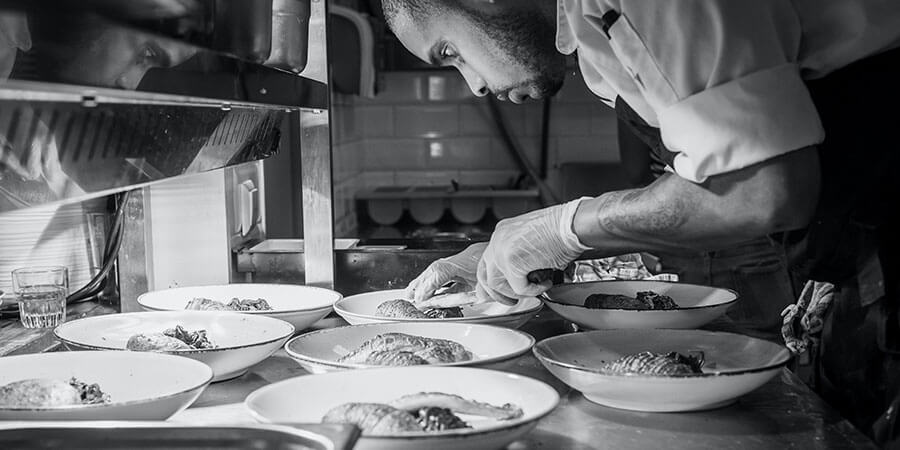Effective Ways To Prevent Food Poisoning Outbreaks In Restaurants

Every year, approximately 48 million Americans contract food poisoning, according to a report by the CDC. Food poisoning can range in severity from very mild to fatal, and should never be regarded as irrelevant. Although food poisoning is definitely not limited to a restaurant environment, apart from leaving customers violently ill, an outbreak can also do severe damage to an establishment’s reputation. Luckily there are a number of basic guidelines that can be followed to help decrease the risk of an outbreak and keep customers and staff members happy and healthy.
Don’t take chances with contaminated food
Most people have, at some point in their lives, dropped something they were eating just to pick it up, dust it off, and pop it back into their mouths. While you are free to live by the 5-second rule in the comfort of your own home, it could have very far-reaching consequences in a restaurant environment. Researchers at Rutgers University found that germs can be transferred to a food item in under 5 seconds, effectively disproving the 5-second rule. In fact, during the 2,560 times that the experiment was conducted, germs transferred to the food every time. Instead of playing Russian roulette with the health and safety of customers, discard any food that was dropped onto the floor.
Encourage sick employees to stay at home
When restaurant staff are sick, they should be requested to stay at home, as there is a high risk of pathogens being transferred to their colleagues and customers via food. If an employee starts feeling ill at work, it should be reported to a supervisor immediately. Symptoms to watch out for include nausea, vomiting, diarrhea, sore throat, fever, and stomach cramps. If any member of staff is diagnosed with cholera, hepatitis A, TB, typhoid fever, or even gastroenteritis, special precautions have to be taken to ensure that neither customers nor staff members are put at risk. By conducting regular deep-cleaning of the entire establishment, the spread of viruses and bacteria can be reduced significantly.
Keep the kitchen clean
One of the most effective ways to limit the risk of a food poisoning outbreak in a restaurant is to ensure that the kitchen is disinfected frequently. There are various very effective disinfectants available on the market that are specifically designed for use in a commercial kitchen. When dealing with specific pathogens such as salmonella or the norovirus, however, it is important that the disinfectant used is registered by the EPA as being effective against these pathogens. When disinfecting a commercial kitchen, it is vital to make sure that all surfaces (including those that are not in regular use), faucets, door handles, and appliances are disinfected at least once a day.
A food poisoning outbreak can impact a restaurant in many ways. Apart from leaving employees and customers ill, it can also damage an establishment’s good reputation and should be avoided as far as possible.
Share This!